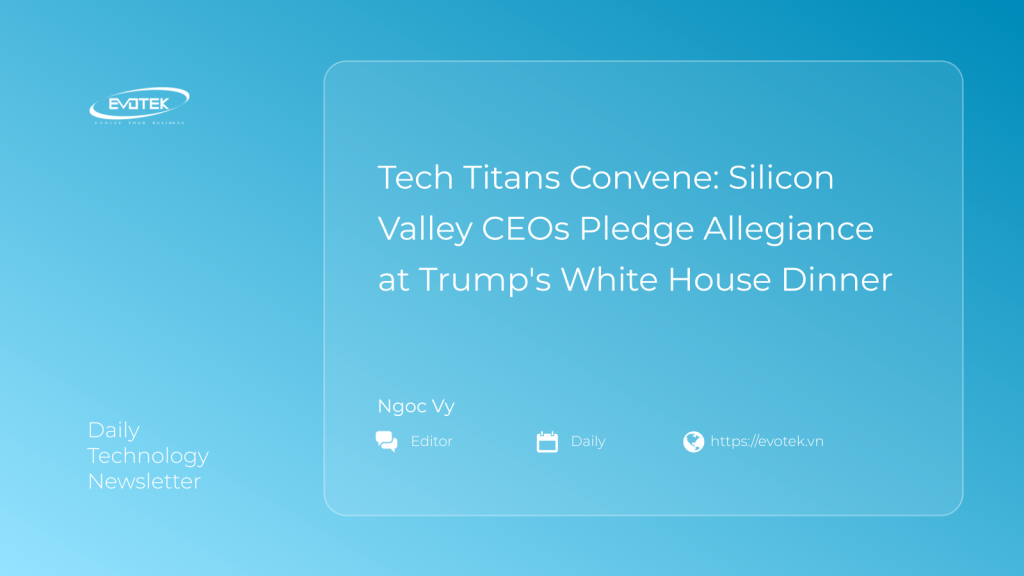A remarkable gathering unfolded at the White House State Dining Room on Thursday evening, as America’s most influential tech executives converged for a dinner hosted by US President Donald Trump and First Lady Melania Trump. The event, partially broadcast on C-SPAN, showcased a striking display of unity and deference from fierce industry competitors, including Meta CEO Mark Zuckerberg, Microsoft founder Bill Gates, Apple CEO Tim Cook, Microsoft CEO Satya Nadella, and OpenAI CEO Sam Altman.
The scene, initially somewhat disorienting with its close-up camera angles and an unusually long table, quickly established its central theme. President Trump’s introduction, typically grandiose yet slightly muddled, praised the attendees for “leading a revolution in business and in genius and every other word.” Within moments, the tone shifted unmistakably towards a series of prepared endorsements.
High-Stakes Pledges and Presidential Praise
This exclusive dinner marked the culmination of months of increasingly close ties between the Trump administration and Big Tech. The President methodically questioned each executive about their investments within the United States, eliciting an eager chorus of affirmations and praise for his leadership.
- Mark Zuckerberg of Meta committed to “something like $600 billion through ’28” in domestic infrastructure.
- Sergey Brin extended congratulations to Trump for “applying pressure” in Venezuela, a comment that raised eyebrows given recent international incidents.
- Many, including Satya Nadella of Microsoft, Sundar Pichai of Google, and Lisa Su of AMD, lauded the administration’s proactive AI policies. Nadella specifically commended Melania Trump’s leadership in “skilling and economic opportunity that comes with AI,” referencing her recent Presidential Artificial Intelligence Challenge.
- Tim Cook of Apple thanked the President for “setting the tone such that we could make a major investment in the United States,” referring to Apple’s $600 billion pledge towards US manufacturing – a commitment notably made amidst threats of significant tariffs.
- Safra Catz, Oracle CEO and a former member of Trump’s transition team, offered particularly enthusiastic praise: “You’ve unleashed American innovation and creativity. All the work you’re doing in basically every cabinet post in addition to what’s coming out of the White House is making it possible for America to win. I think this is the most exciting time in America ever.”
Following a brief jest about his own rumored demise, Trump opened the floor to media questions, a moment subtly punctuated by Zuckerberg’s expressive eyebrow raise caught on camera.
The Protocol of Power: Seating Charts and Silences
The seating arrangement itself offered insights into the unspoken hierarchy of the evening. Mark Zuckerberg occupied the coveted spot directly to Trump’s right, while Bill Gates was seated next to Melania Trump. Sergey Brin and his “really wonderful MAGA girlfriend,” Gerelyn Gilbert-Soto, sat directly opposite the President. Meanwhile, others like Satya Nadella found themselves in less prominent positions, underscoring the subtle power dynamics at play, often dictated by “unspoken rank” as per traditional etiquette.
Notably absent from the dinner were industry titans such as Elon Musk, Jeff Bezos, and Nvidia’s Jensen Huang, though their current standing with the administration suggests they are already in the President’s good graces through various business dealings and public stances.
Equally revealing were the silences. While OpenAI CEO Sam Altman was given a platform, Meta Superintelligence Labs leader Alexandr Wang was not. White House AI and crypto czar David Sacks spoke prominently, while his podcast cohost Chamanth Palihapitiya remained quiet.
Critical Omissions from the Discussion
Perhaps most telling was what remained unsaid. Several crucial topics with profound implications for the tech sector and the broader economy were conspicuously absent:
- Immigration: A critical issue for the US tech industry, heavily reliant on a global talent pool.
- Tariffs’ Impact: Beyond Cook’s allusion, the potentially devastating effect of tariffs on consumer technology prices went undiscussed.
- Environmental Costs of AI: The astronomical energy and resource demands of burgeoning AI innovation, and their environmental and consumer costs, received no mention.
For years, the relationship between the average person and Big Tech was distilled into the axiom: “you’re the product.” As these powerful executives continue to align with a political agenda perceived by some as challenging democratic foundations, a new guiding principle appears to emerge: The only principle is power.

 日本語
日本語 한국어
한국어 Tiếng Việt
Tiếng Việt 简体中文
简体中文